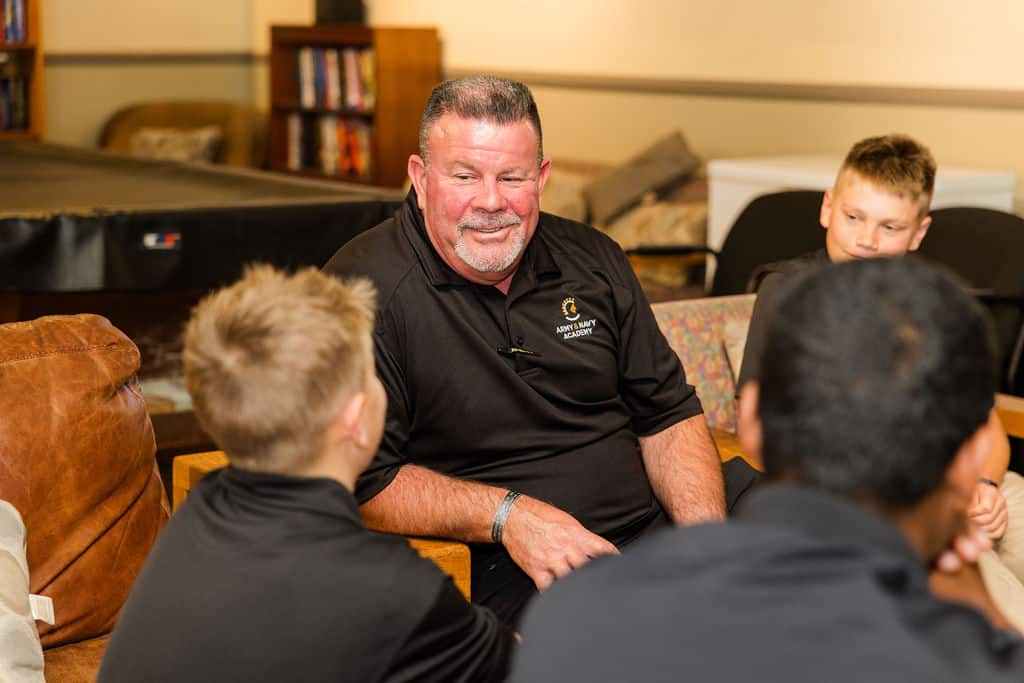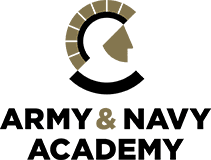Learn why mentoring occurs naturally at U.S. boarding schools. It is important for students to understand the value of mentorship while they are in high school so they seek out mentorship and guidance. Mentors in high school can be administrators, teachers, coaches, residential life staff, counselors, and even peers.

Relationships develop naturally in boarding schools because they offer both formal and informal mentorship programs through academics, counseling, athletics, and campus life. Unlike public and private day schools where the day ends after classes or sports, boarding schools are in the unique position to offer mentorship and guidance 24/7.
5 Reasons Why Mentoring Occurs Naturally at Boarding Schools
- Faculty Mentorship Ignites a Passion for Learning – Teachers often provide support during after-school tutorial periods or during evening office hours. With classes being small, they are able to offer individualized attention and take a personal interest in the academic and personal success of every student.
- Counselors Guide High School Students on College Admissions – Guidance Counselors support and guide students with their academic schedules, provide emotional and social support, and work with students and families on the college application process. Some boarding schools offer college counseling, student counseling, and even peer counseling programs.
- Coaches Inspire Goal Setting and Teamwork – Athletic coaches help students develop confidence, set goals, and enjoy a sense of pride in individual and collective achievement. They push students to be healthy, fit, and demonstrate good character. Teamwork and leadership are also common themes as they motivate students to reach for peak athletic performance.
- Residential Life Staff Teach Teens Good Life Habits – Residential Life staff work closely with students and parents to ensure students adapt while living away from home. They mentor and guide students to participate in clubs, trips, sports, student government, and develop good life habits (e.g. etiquette, personal hygiene, nutrition, fitness). Many boarding school students report the residential life staff play an instrumental role in their personal growth and development.
- Peers Promote Shared Values and Interests – Friends offer a powerful form of mentorship and some boarding schools even offer peer tutoring and peer counseling programs. This allows students to have several layers of support from peers, older students, as well as adults on campus.
5 Reasons Why High School Students Need Mentorship Programs
Even with highly involved parents, teens need guidance from outside sources while they are attending high school. If teens are to develop personally, academically, socially, and athletically, there are many benefits to both informal and formal mentorship programs. This formative time of life should not be left to chance, so private school students should make every effort to take advantage of the various types of mentorship on their campus. Here are some of the reasons why high school students need mentorship in middle and high school.
- Improve Academics – Grades, study habits, and college possibilities tend to improve when students view their teachers as mentors. Although the faculty may not offer a formal mentorship program, students tend to develop a deeper interest in subject matter if they have a faculty mentor. Teachers may even inspire college majors and future career directions.
- Get into a Better College – College Counselors help students get into better colleges by providing personalized support, college workshops, and social/emotional support during adolescence. Counselors can offer guidance and mentor students to reach higher, become better prepared to face college challenges, and develop ways to manage stressors. Counselors at boarding schools typically offer formal programs for counseling, college workshops, peer tutoring, and other support programs.
- Become Fit for Life – Coaches are often instrumental and inspirational in helping teens develop fitness habits that last a lifetime. Athletes tend to push themselves harder and achieve more with strong coaching and mentorship. Athletic programs are built on core values and protocols, so every student athlete can become more self-disciplined and motivated.
- Become Independent and Resilient – Residential Life staff are instrumental in helping boarding school students navigate life away from home. They help students become more independent and resilient. Residential Life programs push students to go beyond academics and get involved in sports and extracurricular activities. In addition, they support students in their goal setting, character development and the acquisition of life skills and habits.
- Develop Social Support and a Growth Mindset – There are many people on boarding school campuses that provide social and emotional support, but friends are a critical component. Friends push one another to aim high in academics, try new sports, clubs, activities, and cultivate a growth mindset in their circle of friends. At some boarding schools, you may be assigned to an older student during the first few weeks or even for the academic year.
How to Find a Mentor on a Boarding School Campus
Here are some ways to find mentors on campus, what to ask them, and how to expand your circle of mentors. Most people consider themselves lucky to have a few great mentors in their lifetime; however, on a boarding school campus, students should be able to find many mentors. Here are some ways to seek out mentorship:
- Ask about established programs when you are applying to boarding schools. Most boarding schools will offer both formal and informal mentorship programs through various departments.
- Take advantage of faculty tutorial periods and office hours. This will help you build a connection with your favorite teachers. This will naturally result in guidance and personalized attention geared to your learning style and personal subject matter interests.
- Participate in a sport and ask the coach for tips and inspiration. Coaches want teens to develop and grow on many levels. A coach can help you form strong values, become a leader, and a better team player. They will help you stay motivated to do your best.
- Reach out to your counselor early in the year to begin college prep early. They will guide you on classes to take, but will also be there for you during tough times. Don’t hesitate to reach out if you are experiencing anxiety, depression, homesickness, or other forms of stress. They will help you make life changes to manage stressors.
- Ask your residential life officer for guidance so you adapt quickly to campus life. They will help you figure out where classes are located, determine the best clubs, activities, sports, weekend activities suited to your interests, how to maximize study time, follow schedules, and much more.
- Find friends who will push you, support you, and teach you new things. Early in the school year, make a habit of sitting with different people at meals, joining diverse clubs, participate in sports, so you meet a cross-section of students on campus.
- Ask about summer internships to expand your circle of mentors. Some schools offer amazing summer internships. For instance, a boarding school for boys in California selects students for the prestigious Stanford Cardiovascular Institute Internship Program.
- Find an alumnus who is willing to share college or career info with you. Beyond just internal faculty, staff, administrators, and friends, make a point of attending alumni weekend events. This could lead to internships and mentorship for your college or career.
- Go to the top and seek advice from the Head of School or President. Not every student is comfortable reaching out to the Head, but this person could be a life changer for you. For instance, if you plan to apply to an Ivy League university or a top military service academy, this person might write a letter of recommendation for you. Make a point of reaching out and introducing yourself to the President.
- Make a plan to go home with a friend on a weekend or during a break. Your parents and the parents of your friends could expand your perspectives, viewpoints, and may offer insights you haven’t ever considered. Boarding school students also typically report they appreciate and respect their own parents even more as a result of living away from home.
Now that you know why mentorship occurs so naturally at boarding school, as well as where and how to seek out support, why not take the first step?
If you are not currently attending a boarding school in the U.S., but plan to apply, you can find private school directories at Boarding School Review, AMCSUS (military boarding schools), The Association of Boarding Schools (TABS), Western Boarding Schools Association (WBSA), Great Schools, Niche, Study International, and other sites. Also, feel free to contact the Office of Admission at schools of your choice to learn more about mentorship programs at their respective school. Learn more about the boarding school programs available at Army and Navy Academy.

Candace Heidenrich is the CEO of Aperture Advisory Associates, where she works with private secondary and higher education leaders to strengthen programs and practices. She founded Aperture in 2018 after more than a decade in a senior administrative role at a boarding school in California. Additionally, she held faculty and chair positions at private schools and colleges in Los Angeles and Ojai. Her background also includes director and executive level positions with start-ups and Fortune 500 corporations.
While earning her B.A. in Education and Humanities in the Lawrence Henry Gipson Scholar program, she studied abroad at Oxford before pursuing her master’s at the University of California, Santa Barbara. A frequent speaker at national conferences, she is a recognized thought leader and authority on enrollment management and marketing best practices.
